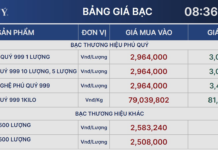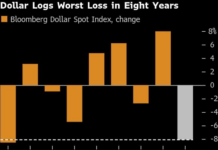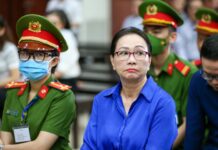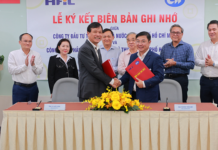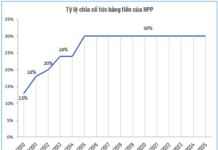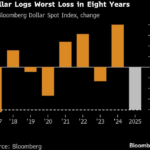Distinguishing Speculation, Investment, and Genuine Demand in Real Estate
The Ministry of Construction’s draft Resolution on mechanisms to control and stabilize real estate prices proposes capping loans for second home purchases at 50% and third home purchases at 30%. Additionally, it suggests allocating a minimum of 20% of commercial housing projects to affordable housing, with local authorities determining specifics.
In an interview, Nguyen Van Dinh, Vice Chairman of the Vietnam Real Estate Association, noted that restricting loans for second or subsequent home purchases could help cool housing prices. However, he expressed concern that such measures might inadvertently affect those with genuine needs, such as large families or parents buying additional homes for their children.
Dinh emphasized the need to clearly differentiate between speculative, investment, and genuine demand to avoid penalizing legitimate buyers. “Solutions should not be piecemeal but part of a comprehensive, synchronized regulatory system with multiple tools to target the right groups. A unified database and centralized transaction centers are essential for effective monitoring,” he stated.
Regarding the proposal to allocate 20% of projects to affordable housing, Dinh described it as a step in the right direction but insufficient. He called for mandatory mechanisms to ensure local compliance, citing the current challenges in implementing social housing quotas.
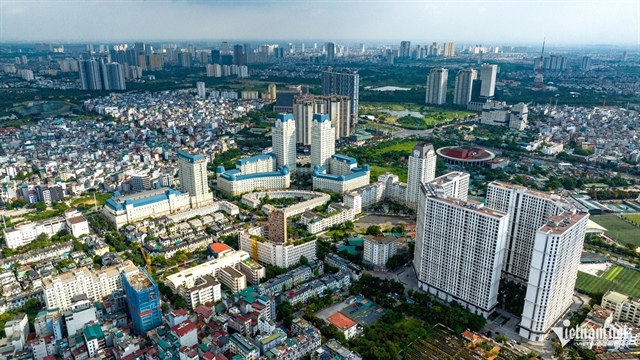 Experts argue that lowering property prices requires a holistic approach to market regulation. Photo: Hoàng Hà |
Pham Duc Toan, CEO of EZ Property, revealed that speculators and investors account for 60-70% of buyers in many new projects. While loan restrictions could curb speculation, he predicted limited impact due to loopholes. Many investors have substantial cash reserves or assets to secure alternative financing.
“This measure applies only to future housing projects. For properties with existing land titles, control is challenging as borrowers can access credit through various means,” Toan explained. He also highlighted cultural factors, such as Vietnamese families often purchasing homes under parents’ names before transferring them to children, which could be affected by such policies.
Boosting Supply and Fostering Competition
Vu Cuong Quyet, CEO of Dat Xanh Mien Bac, stressed that real estate operates on supply and demand dynamics. High demand coupled with limited supply drives prices up. While loan restrictions address part of the issue, he advocated for tax policies to regulate the market effectively. High land-use fees and taxes inflate developer costs, ultimately raising property prices.
Quyet urged a comprehensive approach, including streamlining procedures to increase housing supply. “Ample supply will naturally lower prices. Expanding social housing, low-income housing, and rental options will reduce purchasing pressure,” he added, calling for lower bank interest rates for first-time buyers and low-income earners.
Toan echoed the need for parallel development of commercial and affordable housing segments. “Increased social housing supply will force commercial properties to compete on price, allowing market self-regulation,” he said. Citing Hai Duong as an example, where robust social housing development kept commercial prices stable, he urged policymakers to prioritize market-driven solutions over administrative mandates.
Nguyễn Lê
– 13:48 08/10/2025
Vietnam’s Ascent to Global Financial Hub Status
Aspiring to establish Vietnam as a compelling and sustainable global financial hub not only unlocks opportunities to attract international capital but also serves as a critical test of its institutional framework, infrastructure, and capacity to foster an environment that is truly livable, workable, and investable.
Breaking: Ministry of Construction Proposes Tighter Restrictions on Second Home Mortgages
The Ministry of Construction has recently proposed a cap on loan limits for purchasing second homes (excluding social housing) at no more than 50% of the contract value, with a further reduction to 30% for third and subsequent properties.
Will Hanoi Apartment Prices Continue to Reach New Heights in the Coming Period?
Ms. Do Thu Hang, Senior Director of Research & Consultancy Services at Savills Hanoi, predicts that Hanoi’s real estate market will see a clear differentiation in the upcoming period, based on both location and project quality. As a result, it’s essential to monitor and assess the market rather than drawing premature conclusions about current housing price trends.
Sun Urban City: The Epitome of Modern Urban Living in Southern Hanoi
As transportation infrastructure expands and education and healthcare facilities flourish, visionary urban developments like Sun Urban City are poised to redefine modern living standards in South Hanoi, setting a new benchmark for sophistication and progress.





